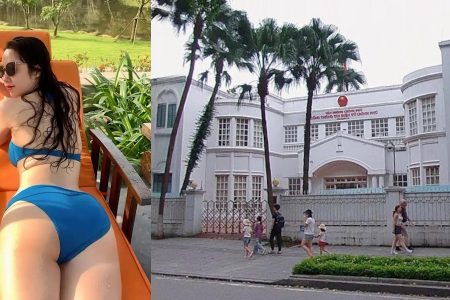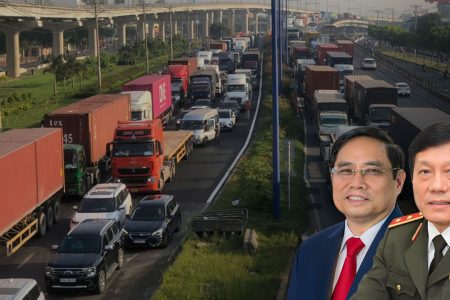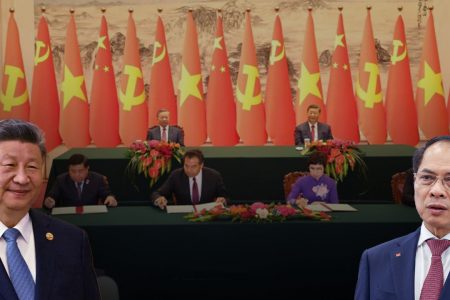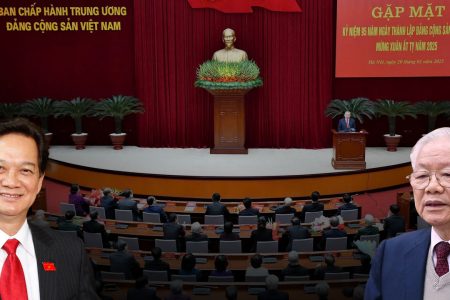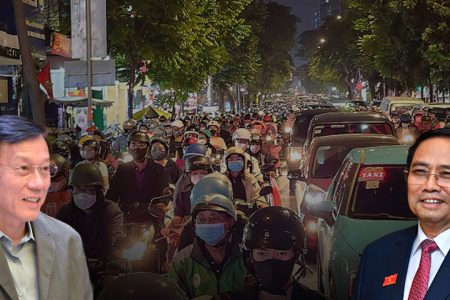
Term 1: Bank overdue debt
In recent months, banks have continuously offered to sell bad debts to recover capital, and the number of auctions has become increasingly dense. There are debts of hundreds, thousands of billions of dong, but there are also debts of only a few million, even a few hundred thousand dong. But whether the debt is large or small, the bank’s sale is still continuous, despite the “great discount.”
Most recently, on December 5, Sacombank announced that it would continue to sell a number of collateral assets to recover large debts, many properties have been “put up for sale” many times, much reduced in price, but still no one asked. A Sacombank property is for sale in Phong Phu Industrial Park, Phong Phu Commune, Binh Chanh District, Ho Chi Minh City. This is the collateral for 18 debts, with a total outstanding balance of VND16.2 trillion, but this auction only sold for VND7.93 trillion. Similarly, Van Phat Real Estate’s debt has a balance of VND596 billion, for sale for VND189 billion only, and the collateral for sale is 40 million shares of Do Thanh Real Estate Joint Stock Company, code DTR securities. This debt Van Phat borrowed from 10 years ago with the principal amount of VND188 billion, over 10 years, the interest has doubled the principal.
Similar to Sacombank, other banks are also massively selling a lot of collateral for bad debts up to hundreds or thousands of billion, with a starting price much lower than the debt’s value, but few buyers also. For example, Vietcombank is selling mortgaged real estate with a total outstanding balance of VND1,380 trillion…
The bad debt that banks are selling recently is not a new bad debt, but it has accumulated many years ago. Why did banks not solve these bad debts sooner, as soon as it turned bad, but “hug” until now, when the real estate market froze, the stock market collapsed, bringing new for sale, only to have to hold bitter fruit.
Is it possible that this consequence is because banks for a very long time have been lending too easily, just relying on the relationship, relying on the “bribery” cost to be able to borrow. Everyone understands, in Vietnam, when you want to borrow money from a bank, people have to give bribery for bank staff. If it is a large loan, you have to take care of the big boss, if it is a small loan, you only need to have a relationship with a credit officer and an appraisal officer, etc.

Just like that, through the “bribery,” the value of the collateral is easily pushed up, even in some cases it is pushed up to many times the real value. Large loans prove to be borrowed by large enterprises, and large enterprises often have relationships with big bosses, so the ability to “price up” and “push up” the collateral is greater… Then comes the debtor’s failure to pay the debt, and the collateral is put on the market for sale, at which point the property’s value must return to market value, and it will normally be less than the loan. Not to mention the case where the debtor does not pay both the capital and the interest, the interest will accrue to the capital, and the debt will continue to increase, as in the case of Van Phat Real Estate mentioned above. So the fact that banks don’t sell large bad debts earlier, is it to cover up their fraudulent behavior in the appraisal and approval of their loans, to avoid being exposed… Up to now, real estate goes frozen and price drop, they just put it up for sale so that this price drop “seems” to be reasonable?
Not only that, many banks also sell unsecured consumer loans. Recently, Viettinbank has offered to sell 321 bad debts which are consumer loans. Although unlike Viettinbank, which dared to openly sell unsecured bad debts, other commercial banks have quietly sold unsecured bad debts in recent years.
So who dares to buy these debts?
These bad debts certainly do not dare to be bought by anyone other than debt collection companies. To put it bluntly, those are licensed gangsters. These organizations have been running rampant for 3-4 years now, causing a lot of grievances, even during a time of strict social blockade.
Who are these debt collection companies backing and daring to act like this? Please listen to the next episode.

Thoibao.de (Translated)



